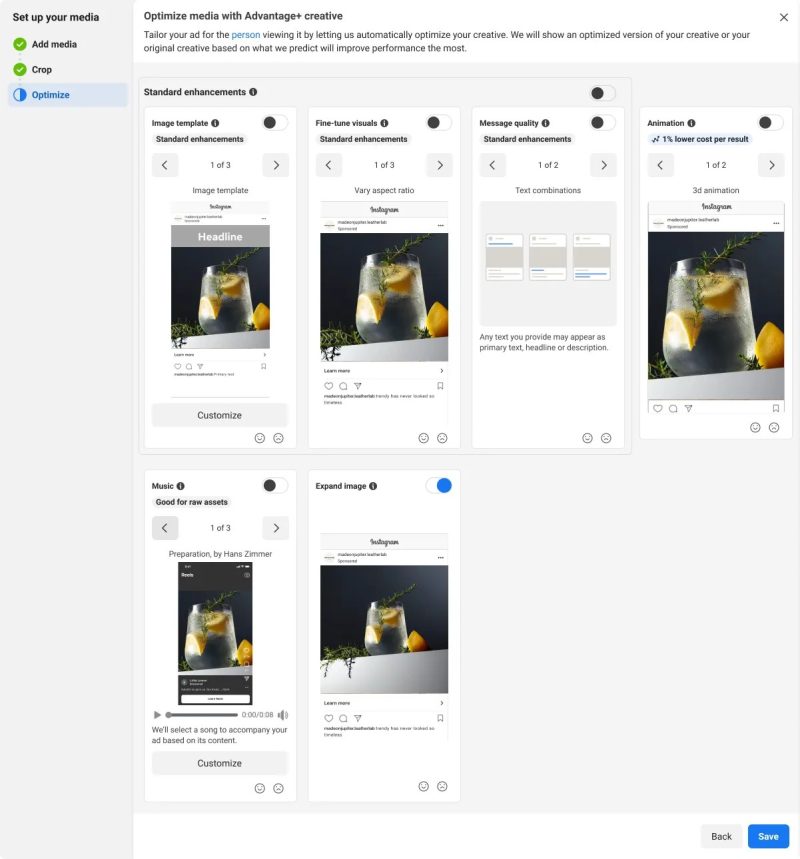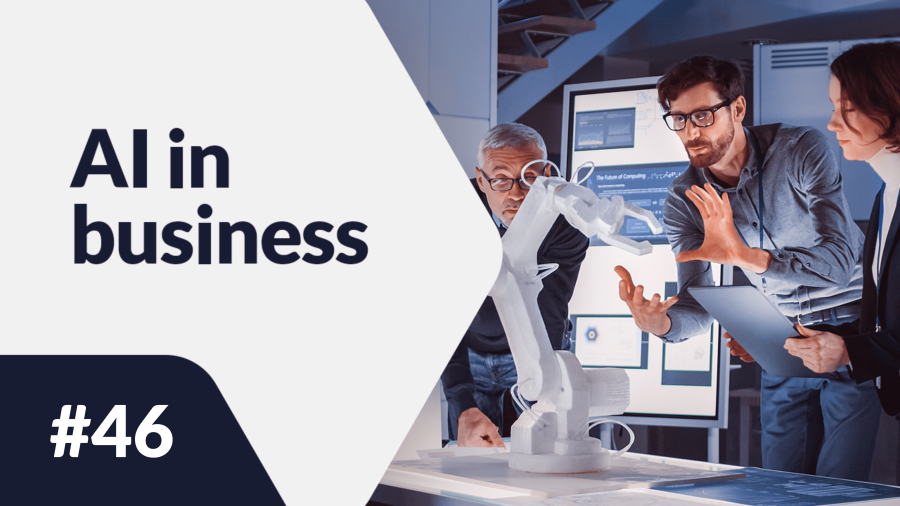Meta AI – table of contents:
Meta AI. The artificial intelligence of Facebook and Instagram
AI ethics is about how AI-based technologies should be designed, developed, used and managed responsibly and following human values.
Facebook and Instagram are leveraging the capabilities of artificial intelligence in many fields. One of the applications available to English-speaking users is Meta AI, an assistant that can be spoken to 1-on-1 or in group chats using WhatsApp, Messenger, Instagram, and Facebook Stories. It can make recommendations, tell jokes, and answer questions.
The service is built on the Llama 2 model, which Meta released for commercial use in July 2022. Llama 2 is a large language model (LLM), trained on texts totaling hundreds of billions of words taken from the Internet. As a result, it can, among other things, translate between more than 200 languages or generate texts based on short clues. It can be used by companies to create chatbots, customer service systems, or text analysis.
In addition, Meta AI has the new Emu (Expressive Media Universe) model, which generates images based on text prompts. It makes it possible to create visualizations of concepts that cannot be captured with a camera. Just by typing in, for example, “Plush bear doing AI research,” the AI can generate fancy graphics based on that.

Source: Meta
With its models, Meta is introducing new characters for chatbots to converse with, as well as generative tools for Facebook and Instagram to create custom stickers or change the style of photos with text commands.
AI development in the Met ecosystem. What does this mean for companies?
However, the Met’s artificial intelligence is not just about improving Facebook’s functionality or making Instagram more enjoyable.
New Meta AI models
For companies, the development of artificial intelligence in the Meta ecosystem primarily means access to open models on which they can build their solutions. Indeed, Meta’s research labs are not only working on Meta AI, Llama 2 or Emu. Meta is making more and more AI models available under an open license. For example, SeamlessM4T for translation. This is an advanced language model for translating speech and text between multiple languages. It achieves better translation quality than previous Meta systems. It can process up to 128 languages and is available for free download.
Another example is Habitat, a physical simulator for training intelligent virtual agents. These agents learn to walk, manipulate objects and interact with the world, which could have applications in robotics or the metaverse.
AI in Meta Ads
Another area of Meta AI of particular importance to companies involves incorporating artificial intelligence in creating and publishing Meta Ads. Meta has announced that it is introducing new AI-based tools for all advertisers to create images and text faster. The capabilities include:
- Generating background images for products,
- Creating different versions of advertising text, or
- Automatically resizing ads and zoom in to fit Instagram or Facebook.

Source: Meta
The new features will be available to advertisers in Meta’s ad manager, and the release of the new features to all companies will be completed next year.
Overall, Meta seeks to advance AI through research and application to products. It also makes solutions available to the public, such as:
- PyTorch – a Python-based machine learning framework popular among engineers and scientists,
- Glow – a framework designed for rapid machine learning based on C++,
- ONNX – a machine learning model exchange format that allows models to be shared between different frameworks.
For companies, this means access to powerful AI tools that they can leverage in:
- ustomer service – for example, creating chatbots,
- marketing – including for ad targeting, or
- analyzing customer sentiment on social media – to analyze the emotional attitude of observers to new products introduced.
Artificial intelligence moderates Meta content
However, in Meta AI is primarily used for content ranking and moderation. On Facebook’s help center page, one can learn that in Meta AI is the first tool to prevent the publication of harmful content:
“Artificial intelligence technology is a key component of our content verification process. Artificial intelligence can detect and remove content that does not comply with our Community Standards before anyone reports it.”
For example, in the first half of 2022, Facebook removed more than 5 million pieces of content infringing copyrights, trademarks, etc. reported by users. Meta is also developing new methods for detecting such violations.
Security and privacy on Meta AI platforms
The question on many people’s minds about Meta AI’s great results is: how did Meta get the data to train its models? The answer can be found in Meta’s Privacy Center. Meta AI’s knowledge comes from:
- from public posts from Facebook and Instagram, excluding private content to respect users’ data,
- from licensed sources obtained from other suppliers, and
- From information publicly available on the Internet.
Meta says it trained AI responsibly, with safeguards like a ban on generating fake images of public figures. It also reveals details on security signals that help reduce the spread of harmful content. This is intended to increase transparency and user trust. At the same time, only 18% of users in the U.S. believe that Facebook protects their privacy and data. This is the lowest of all social media platforms and down from 30% in 2020.
To shore up its reputation and credibility, and to stop being associated with fake news, Meta has decided to prepare for the 2024 US elections. It has introduced regulations that require ads tying themselves to political campaigns to disclose the use of artificial intelligence in ads. Under the new policy, Meta AI will be visible through labels that appear on screens when they click on an ad.
Meta AI – summary
Meta has recently been striving to be transparent about its AI in digital interaction and marketing. At the same time, it is developing advanced AI models and Meta AI generative solutions. This is changing the way companies and users use social media. The company is making more and more AI tools available for business use, from chatbots to language models or simulators. By using these capabilities responsibly, businesses can streamline many processes.
Nonetheless, growing concerns about the privacy and ethics of AI point to the need to balance technological innovation with social responsibility. As Meta continues to develop its Meta AI, it will be crucial to monitor how these developments will affect the future of digital interactions and balance technological advances with user privacy.

If you like our content, join our busy bees community on Facebook, Twitter, LinkedIn, Instagram, YouTube, Pinterest, TikTok.
Author: Robert Whitney
JavaScript expert and instructor who coaches IT departments. His main goal is to up-level team productivity by teaching others how to effectively cooperate while coding.
AI in business:
- Threats and opportunities of AI in business (part 1)
- Threats and opportunities of AI in business (part 2)
- AI applications in business - overview
- AI-assisted text chatbots
- Business NLP today and tomorrow
- The role of AI in business decision-making
- Scheduling social media posts. How can AI help?
- Automated social media posts
- New services and products operating with AI
- What are the weaknesses of my business idea? A brainstorming session with ChatGPT
- Using ChatGPT in business
- Synthetic actors. Top 3 AI video generators
- 3 useful AI graphic design tools. Generative AI in business
- 3 awesome AI writers you must try out today
- Exploring the power of AI in music creation
- Navigating new business opportunities with ChatGPT-4
- AI tools for the manager
- 6 awesome ChatGTP plugins that will make your life easier
- 3 grafików AI. Generatywna sztuczna inteligencja dla biznesu
- What is the future of AI according to McKinsey Global Institute?
- Artificial intelligence in business - Introduction
- What is NLP, or natural language processing in business
- Automatic document processing
- Google Translate vs DeepL. 5 applications of machine translation for business
- The operation and business applications of voicebots
- Virtual assistant technology, or how to talk to AI?
- What is Business Intelligence?
- Will artificial intelligence replace business analysts?
- How can artificial intelligence help with BPM?
- AI and social media – what do they say about us?
- Artificial intelligence in content management
- Creative AI of today and tomorrow
- Multimodal AI and its applications in business
- New interactions. How is AI changing the way we operate devices?
- RPA and APIs in a digital company
- The future job market and upcoming professions
- AI in EdTech. 3 examples of companies that used the potential of artificial intelligence
- Artificial intelligence and the environment. 3 AI solutions to help you build a sustainable business
- AI content detectors. Are they worth it?
- ChatGPT vs Bard vs Bing. Which AI chatbot is leading the race?
- Is chatbot AI a competitor to Google search?
- Effective ChatGPT Prompts for HR and Recruitment
- Prompt engineering. What does a prompt engineer do?
- AI Mockup generator. Top 4 tools
- AI and what else? Top technology trends for business in 2024
- AI and business ethics. Why you should invest in ethical solutions
- Meta AI. What should you know about Facebook and Instagram's AI-supported features?
- AI regulation. What do you need to know as an entrepreneur?
- 5 new uses of AI in business
- AI products and projects - how are they different from others?
- AI-assisted process automation. Where to start?
- How do you match an AI solution to a business problem?
- AI as an expert on your team
- AI team vs. division of roles
- How to choose a career field in AI?
- Is it always worth it to add artificial intelligence to the product development process?
- AI in HR: How recruitment automation affects HR and team development
- 6 most interesting AI tools in 2023
- 6 biggest business mishaps caused by AI
- What is the company's AI maturity analysis?
- AI for B2B personalization
- ChatGPT use cases. 18 examples of how to improve your business with ChatGPT in 2024
- Microlearning. A quick way to get new skills
- The most interesting AI implementations in companies in 2024
- What do artificial intelligence specialists do?
- What challenges does the AI project bring?
- Top 8 AI tools for business in 2024
- AI in CRM. What does AI change in CRM tools?
- The UE AI Act. How does Europe regulate the use of artificial intelligence
- Sora. How will realistic videos from OpenAI change business?
- Top 7 AI website builders
- No-code tools and AI innovations
- How much does using AI increase the productivity of your team?
- How to use ChatGTP for market research?
- How to broaden the reach of your AI marketing campaign?
- "We are all developers". How can citizen developers help your company?
- AI in transportation and logistics
- What business pain points can AI fix?
- Artificial intelligence in the media
- AI in banking and finance. Stripe, Monzo, and Grab
- AI in the travel industry
- How AI is fostering the birth of new technologies
- The revolution of AI in social media
- AI in e-commerce. Overview of global leaders
- Top 4 AI image creation tools
- Top 5 AI tools for data analysis
- AI strategy in your company - how to build it?
- Best AI courses – 6 awesome recommendations
- Optimizing social media listening with AI tools
- IoT + AI, or how to reduce energy costs in a company
- AI in logistics. 5 best tools
- GPT Store – an overview of the most interesting GPTs for business
- LLM, GPT, RAG... What do AI acronyms mean?
- AI robots – the future or present of business?
- What is the cost of implementing AI in a company?
- How can AI help in a freelancer’s career?
- Automating work and increasing productivity. A guide to AI for freelancers
- AI for startups – best tools
- Building a website with AI
- OpenAI, Midjourney, Anthropic, Hugging Face. Who is who in the world of AI?
- Eleven Labs and what else? The most promising AI startups
- Synthetic data and its importance for the development of your business
- Top AI search engines. Where to look for AI tools?
- Video AI. The latest AI video generators
- AI for managers. How AI can make your job easier
- What’s new in Google Gemini? Everything you need to know
- AI in Poland. Companies, meetings, and conferences
- AI calendar. How to optimize your time in a company?
- AI and the future of work. How to prepare your business for change?
- AI voice cloning for business. How to create personalized voice messages with AI?
- Fact-checking and AI hallucinations
- AI in recruitment – developing recruitment materials step-by-step
- Midjourney v6. Innovations in AI image generation
- AI in SMEs. How can SMEs compete with giants using AI?
- How is AI changing influencer marketing?
- Is AI really a threat to developers? Devin and Microsoft AutoDev
- AI chatbots for e-commerce. Case studies
- Best AI chatbots for ecommerce. Platforms
- How to stay on top of what's going on in the AI world?
- Taming AI. How to take the first steps to apply AI in your business?
- Perplexity, Bing Copilot, or You.com? Comparing AI search engines
- ReALM. A groundbreaking language model from Apple?
- AI experts in Poland
- Google Genie — a generative AI model that creates fully interactive worlds from images
- Automation or augmentation? Two approaches to AI in a company
- LLMOps, or how to effectively manage language models in an organization
- AI video generation. New horizons in video content production for businesses
- Best AI transcription tools. How to transform long recordings into concise summaries?
- Sentiment analysis with AI. How does it help drive change in business?
- The role of AI in content moderation


















